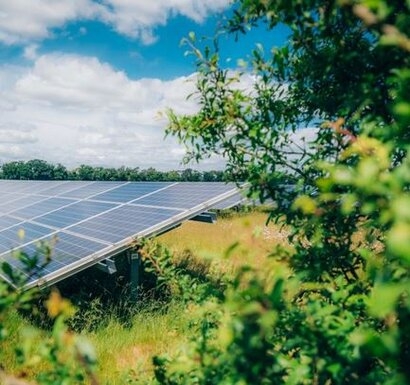
The projects are the first to be financed by the renewable energy investor’s multi-bank debt facility, established in August with NatWest, Lloyds Bank and AIB. In total, the facility is anticipated to create at least 1 GW of new renewable energy capacity, with the potential to provide clean, affordable power to more than 360,000 homes and avoid 308,000 tonnes of CO2e.
The solar farms are the latest instalments in the company’s growing international portfolio, as it scales up in pursuit of its ambition to create 20 GW of new renewable energy capacity by 2030. The biggest of the four largest projects, Ter Apel (26.7 MWp), will be based in the province of Groningen. A solar farm will also be constructed in Overijssel (7.4 MWp) in addition to two projects near Wijk bij Duurstede, in the province of Utrecht (10.3 MWp and 8.7 MWp). All solar farms have been developed by LC Energy, Low Carbon’s joint venture with engineering firm Qing and one of the leading renewables developers in the Netherlands. LC Energy will support the projects through construction and into operation.
To deliver the projects and limit environmental interference, Low Carbon has partnered with the German-based solar specialist BELECTRIC, one of Europe’s leading providers of engineering, procurement and construction (EPC) services for solar farms. Low Carbon and BELECTRIC are united in their considered approach to development. Numerous ecological assessments have taken place to create tailored construction plans for each site.
To protect biodiversity, solar panels at the site will be built above pear trees to form a light and water permeable roof. The purpose of this process, known as agrophotovoltaics, is to maximise the use of agricultural land available for renewable energy projects. The project will also incorporate approximately 1 hectare of solar panels in an innovative research initiative known as SolarEcoPlus. Here a range of different module configurations and orientations will be installed to allow for research into the underlying ecology and biodiversity.
This innovative approach was inspired by researchers from Wageningen University and TNO (Netherlands Organisation for Applied Scientific Research), who will study the effects of solar fields on biodiversity at the Wijkerbroek West site. The objective of this study will be to highlight the viability of such projects and inform future policy development. Early findings suggest that agrophotovoltaic projects support a more diverse plant life and can improve the quality of soil.
“Today’s announcement marks an important milestone for Low Carbon” said Roy Bedlow, Chief Executive and Founder at Low Carbon. “The four large-scale projects will be the first financed by our multi-bank financing facility, enabling 1 GW of new solar capacity. They also are the latest instalment in our growing international portfolio, and further evidence of our ambition to create 20 GW of renewable energy capacity by the end of this decade. We are also honoured that our sites will be hosting pioneering research, ensuring more land can be used for both energy and agricultural purposes. Amid a climate and energy crisis, this is of paramount importance to Low Carbon.”
For additional information:

